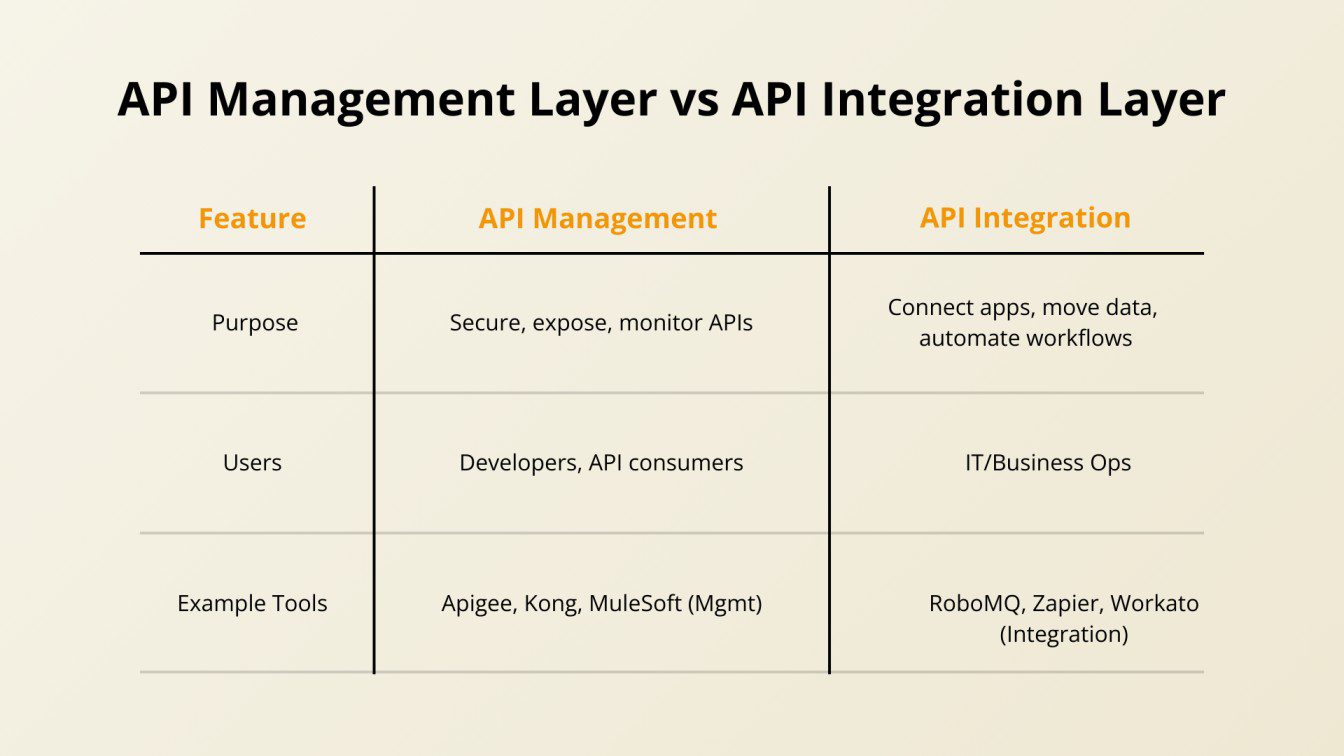For example, a Finance company integrating multiple internal and partner systems without proper API management can be risking security breaches or inconsistent data.
"As part of the digital transformation, we are seeking an API Management Tool that will act as the integration platform between our public-facing systems like the eCommerce platform and internal Enterprise Systems like Salesforce CRM, ServiceNow for Service Management and other home-grown systems."
Application Programming Interface
API Management Platforms
API Integration Platforms
"We need an API Management platform for API based integration between web, partner systems, our salesforce.com, databases on Azure and internal home-grown applications."

Similar to the first use case, you will need both an API Management platform and an API Integration platform (iPaaS, ESB, or an integration middleware) to meet your needs in the best possible way. As in any evolving market, many iPaaS vendors now provide some API Gateway capabilities like the application of policies and controls. However, when making a choice, it might be worth going for the best vendors for each of the API Management and API integration or iPaaS so that you reduce risk and vendor lock-in, while still getting the best features and capabilities in each category.
Want to learn more? Reach out to me or one of the API experts at RoboMQ.
API Integration connects multiple applications and systems with API, automating workflows and processes. On the other hand, API Management is related to governing, securing, and monitoring APIs.
API Integration connects multiple applications and systems to enable automated data transfer. It ensures reduction in manual work, errors, and quick data processing.
Where API Integration platforms uses APIs from various applications to create workflows, API Management platforms secure and govern those APIs before they are shared externally.
RoboMQ is not affiliated, associated, authorized, endorsed by, or in any way officially connected with any of HR systems that it provides integration with and are mentioned in this post. All product and company names are the registered trademarks of their original owners.

Bramh Gupta
Bramh Gupta is the founder and CEO of RoboMQ. He has a background in large scale real-time manufacturing systems, telecommunications and design and architecture of highly scalable and resilient enterprise systems. He is passionate about real-time integration and the value that it brings to business operations and critical decision making.
Bramh holds an MBA from the Kellogg School of Business and Industrial Engineering degree from the National Institute of Technology, Jamshedpur. Bramh combines his business insights and architectural skills to design and create highly scalable, integration platforms and tools that are needed to power the API economy.





